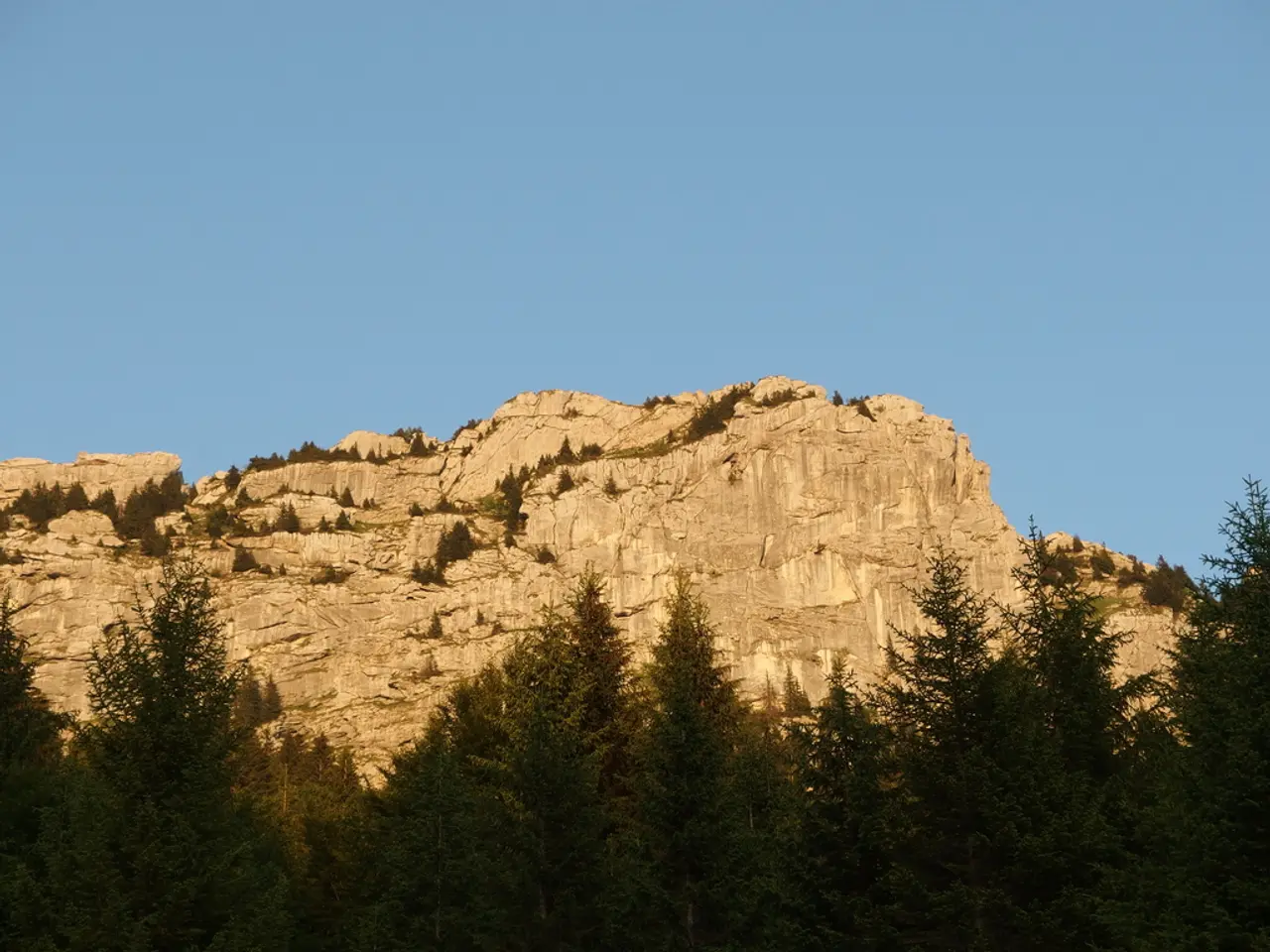"Researchers from IIT Mandi, India, are welcomed by IHRR for their visit"
Durham University and IIT Mandi Collaborate on Climate-Resilient Infrastructure
In a groundbreaking collaboration, the Institute of Hazard, Risk and Resilience (IHRR) at Durham University and the Indian Institute of Technology (IIT) Mandi have joined forces to address the urgent challenges posed by landslides and the impacts of climate change on civil engineering infrastructure, particularly in mountainous regions.
Under the Science for Environmental Awareness and Learning (SEAL) project framework, this partnership aims to enhance scientific understanding and adaptive capacity regarding landslides and associated hazards in the Himalayan region. The collaboration leverages IHRR's expertise in hazard and risk modelling and IIT Mandi's local knowledge and field data.
One of the key areas of focus is the study of how changing climatic patterns, such as increased precipitation variability and extreme weather events, affect slope stability and the integrity of civil infrastructure like roads, bridges, and buildings. The collaboration includes analysing historical landslide data, modelling future risk scenarios, and assessing vulnerability to climate stresses.
A significant innovation emerging from this partnership is the development of the Climate Adaptive Barrier Layer (CABL), an engineered slope stabilisation technique designed to improve resilience to climate impacts. CABL integrates environmental responsiveness, allowing the barrier to adapt to moisture conditions or freeze-thaw cycles, thereby enhancing long-term slope stability. Field trials and laboratory testing are ongoing to optimise materials and design for local Himalayan conditions.
The collaboration has yielded several co-authored papers and reports, advancing academic knowledge of adaptive landslide mitigation. Joint fieldwork at IIT Mandi sites has tested preliminary CABL prototypes and collected extensive monitoring data. Durham researchers have also conducted workshops and training programs for IIT Mandi students and faculty, enhancing local capacity for hazard risk management.
The partnership has attracted funding from research councils and climate adaptation bodies supporting joint innovation. Notably, Dr. Ashutosh Kumar, an Early Career Academic at IIT Mandi, was a key collaborator in the NERC-funded SEAL project. Aditi Rana, an MTech student, visited Durham University's IHRR for laboratory testing on soils from India and was trained in the use of advanced laboratory testing.
Aditi Rana has since been accepted for PhD studies at Portsmouth University and is now collaborating with Professor David Toll on her PhD on "The effects of climate change on the performance of geo-infrastructure under cyclic loading". This ongoing collaboration promises to continue pushing the boundaries of climate-resilient infrastructure solutions.
In conclusion, the IHRR at Durham University and IIT Mandi have established a productive partnership under the SEAL project, combining global expertise with regional insights to address landslide risks exacerbated by climate change. Their joint efforts on the Climate Adaptive Barrier Layer represent a cutting-edge approach to slope stabilisation tailored to Himalayan environmental challenges, with promising implications for infrastructure resilience and hazard mitigation.
- In the pursuit of health-and-wellness and climate-resilient infrastructure, the collaboration between Durham University and IIT Mandi has led to the development of the Climate Adaptive Barrier Layer (CABL), a novel engineered slope stabilisation technique that incorporates environmental science principles.
- The partnership, under the Science for Environmental Awareness and Learning (SEAL) project, is expanding beyond Himalayan challenges, as one of their collaborators, Aditi Rana, embarks on a PhD at Portsmouth University to study the influence of climate change on the performance of geo-infrastructure under cyclic loading, bridging the gap between fitness-and-exercise and environmental-science research.




